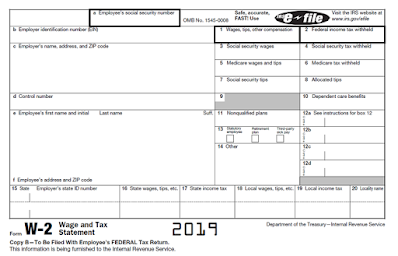I don’t see it very often.
I am referring to an IRS bank levy.
However, when it happens it can be disrupting.
Let’s distinguish between a lien and a levy.
A lien is a claim against property you own to secure
the payment of tax that you owe. The most common is a real estate lien, and I
have one on my desk as I write this.
A lien means that you are fairly deep into the
collection process. It does not necessarily mean that you have blown-off the
IRS. Owe enough money and the IRS will file a lien as a matter of policy. It
does not mean anything is imminent, other than the lien hurting your credit
score. When I see one is when someone wants to either sell or refinance a
property. In either case the lien has to be addressed, which – if you think
about it – is the point of a lien.
A levy is a different matter. A levy takes your stuff.
The threat of a levy is a powerful inducement to come
to a collection agreement with the IRS. Perhaps the agreement is to pay-off the
liability over time (referred to as an installment agreement). There is a
variation where one cannot – realistically – pay-off the full liability over
time. The IRS settles for less than the full liability, and this variation is
called a partial-pay agreement. A cousin
to the partial-pay is the offer in compromise, that of notorious (“pennies on the
dollar”) middle-of-the-night TV fame. If one is in dire enough circumstances,
there is also currently-not-collectible status. The IRS will not collect for a
period of time (around a year). A code is posted on your account and further
collection action will cease (again, for about a year).
What collection agreements do is put a stop to IRS
levies – with one exception.
Let’s talk about the three most common levies that the
IRS uses.
The first is the tax refund offset.
This happens when you file a tax return showing a refund.
The IRS will not send you a refund check; rather they will apply it to tax due for
other periods or years. It is a relatively innocuous way of collecting on the
debt, and I have seen clients intentionally use the offset as a way of paying
down (or off) their back taxes.
The offset, by the way, is the one exception to continued
IRS levy action mentioned above.
The second is the garnishment. The most common is the wage
garnishment. The IRS sends a letter to your employer, advising them to start withholding.
Your employer will, because – if they don’t – they become responsible for any
amounts that should have been garnished. I have heard of people who will then
keep changing jobs, with the intent of staying one step ahead of the IRS.
There are other types of garnishments, depending on the
income source. An independent contractor can be garnished, for example. Even social
security can be garnished.
In general, if you get to this type of levy, you
REALLY want to work something out with the IRS. The tax Code addresses what the
IRS has to leave for you to live on; it does not address how much it can take.
The third is the bank levy.
The IRS sends a notice to the bank, which then has to
freeze your account. The notice can be mailed (probably the most common way) or
it can be hand-delivered by a revenue officer. The freeze is for 21 days, after
which the bank is (unless you do something) sending your balance (up to the amount
due) to the IRS.
That is how it works, folks. It is not pretty, and it
is not intended to be.
You may wonder what the 21 days is about. The IRS
wants you to contact them and work-out a collection plan. Hit the ground
running and you might be able to stop the levy. Delay and all hope is likely gone.
The risk of a bank levy is one reason why some
taxpayers are hesitant to provide bank information with their tax returns. Granted,
as private information becomes anything but and as tax agencies are mandating
electronic bank payments this issue is receding into the distance.
Did you, for example, know that the IRS can ping your
bank account, just to find out your balance?
Take a look at this:
§ 6333 Production of books.
If a levy has been made or is about to be made on any property,
or right to property, any person having custody or control of any books or
records, containing evidence or statements relating to the property or right to
property subject to levy, shall, upon demand of the Secretary, exhibit such
books or records to the Secretary.
There is something about a bank levy that you may want
to know: it is a one-time shot.
An offset or wage levy is self-sustaining. It will
continue month after month, payment after payment, until the debt is paid off
or the levy expires.
The bank levy is different. It applies to the balance
in your bank account when the levy is delivered. This means that it cannot reach a deposit made
to the account the following day, week or month. If the IRS wants to reach
those deposits, it has to reissue the levy (the term is “renew”).
What got me thinking about bank levies is a Chief
Counsel Advice I was reading recently. A bank received a levy, and, wouldn’t
you know, the taxpayer made a deposit to the account the same day – but after the
bank’s receipt of the levy. The bank had zero desire to mess with surrogate
liability and asked the IRS what it should do with that later deposit.
Remember that a bank levy is a photograph – a frozen moment
in time. The IRS said that the later deposit occurred after that moment and was
not in the photograph. The bank was not required to withhold and remit that later
deposit to the IRS.
Makes sense. What doesn’t make sense is that the IRS
would have/should have issued a blizzard of paperwork to the taxpayer,
including an ominous “Notice of Intent to Levy” and “Final Notice of Intent to
Levy and Notice of Your Rights to a Hearing.” Both those notices give one collection
rights. I prefer the rights given under the “Final Notice,” but sometimes it
takes a saint’s patience to explain to a client why we are not responding to
the “Notice of Intent” and instead waiting on its sibling “Final Notice of
Intent.”
Anyway, the taxpayer apparently blew-off these notices
and kept depositing to the same bank account as if nothing was amiss in their world.
Everything in the CCA made sense to me, with the exception of the taxpayer’s
behavior.
This time we talked about Chief Counsel Advice
202118010.



